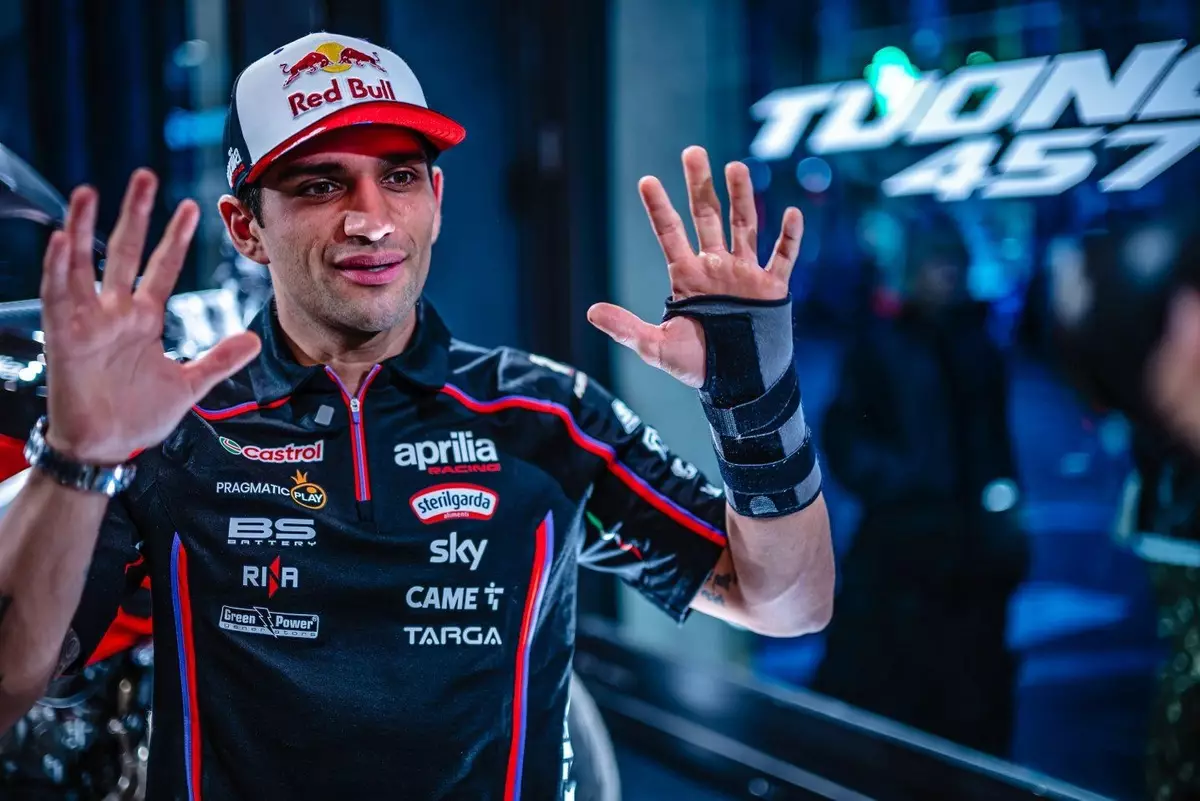Jorge Martin, the reigning MotoGP world champion, faces a daunting challenge that not only tests his physical strength but also his mental resilience. Originally anticipating a swift return to the circuit at the upcoming Americas Grand Prix, Martin has had to adjust his expectations dramatically after sustaining a significant injury—breaking his left hand during a training accident last February. This unfortunate turn of events has already kept him sidelined for the opening races in Thailand and Argentina, raising questions about his future as he embarks on a new chapter with the factory Aprilia team.
The essence of sports often lies in an athlete’s mental fortitude, and Martin’s current predicament highlights a painful reality for many competitors—injuries can severely impede progress and ambitions. His decision to forgo participation in Austin underscores his commitment to a full recovery rather than risking further complications. Martin stated candidly, “I’m really struggling to recover as quickly as I would like.” Such admissions reveal not just vulnerability but also a sense of responsibility that comes with representing a team.
The Importance of Preparation
One of the striking aspects of Martin’s situation is his acknowledgment of the need for preparation before making a comeback. Riding a machine like the Aprilia RS-GP25 requires not just physical readiness but also psychological acclimatization to the bike’s dynamics and handling. Unlike a mere muscle recovery, this mental preparation is essential for elite athletes who perform at the highest levels of their sport. Martin expressed a prudent desire for saddle time on the new bike before racing, indicating a mature understanding of what it takes to compete effectively.
Being unable to participate in pre-season testing due to his earlier accidents complicates matters further. A stark reality emerges: the road to recovery is not just about healing but also involves mastering the nuances of a new team and technology while managing the pressure of expectations. Such a layered challenge requires substantial mental and strategic effort, and it’s clear that Martin is aware of what lies ahead.
Team Dynamics and Future Prospects
Equally interesting is his perspective on his new team, which includes a notable performance from rookie Ai Ogura, who finished fifth, bringing some cheer to the Aprilia camp. Martin’s supportive stance—“I’m cheering for Aprilia—hopefully they can improve a little more and be close to that podium”—highlights the camaraderie intrinsic to competitive sports. He seems to recognize that individual success often weaves into the larger fabric of team achievements, an insight that can foster a strong team culture.
However, missing multiple races at the season’s outset may ultimately jeopardize Martin’s title defense, particularly in such a fiercely competitive field. He has taken a realistic view on the implications of missing races, understanding that each competition is vital for point accumulation and momentum building. His current setbacks may be heartbreaking, but they also allow room for reflection and regeneration—an opportunity not just to heal, but to rethink his approach to racing altogether.
A Champion’s Path Forward
In an environment where pace and dominance are key to establishing relevance, the journey of Jorge Martin serves as a powerful reminder of the unpredictable nature of sports. The path forward will require not only physical rehabilitation but also a tactical reassessment of his goals and strategies within the MotoGP landscape. As he grapples with these challenges, the qualities that define Martin as a champion—resilience, dedication, and a passionate love for the sport—will undoubtedly play a crucial role in his eventual return to the track.


Leave a Reply